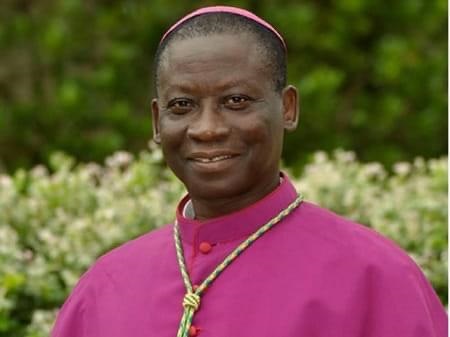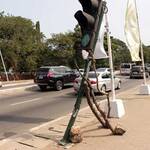The Ghana Catholic Bishop’s Conference (GCBC) has advised government to let its actions reflect the sincerity of its call for citizens to ‘burden-share’, by adopting concrete measures that show that it is aware of the difficult times the country faces.
This, they suggest can be done by adopting a number of cost-cutting measures, like reducing the size of government, and leadership in State-Owned Enterprises (SOEs), as well as the size of presidential and ministerial convoys, which have in recent times become the objects of public anger, as an indication of sincere commitment to the rhetoric.
The Bishops also suggested that government adopts an aggressive approach to implementing the recommendations of the Auditor General’s Reports, which are always full of cases of misappropriation, mismanagement and thievery.
These recommendations were contained in a Communique issued by the GCBC at the end of a Plenary Assembly held at Donkorkrom from November 4 -12, 2022.
They also called for a stiffer crackdown on the forex black market, and money laundering activities in the country as part of efforts to stabilize the Cedi, which has lost over 60% of its value against its major trading partners in the last 11 months.
Other recommendations made by the GCBC include the calling for more effort from Government to protect local industries by promoting made-in-Ghana products.
On the other hand, they also suggested that import duties on materials for critical industries be reduced to ease the burden on the Ghanaian producer.
Appeals on Behalf of the people of the Afram Plains
They also made a number of appeals to government on behalf of the people of Donkorkrom for the construction of the road from Ekye Amanfrom through Donkorkrom to Agordeke and other connecting roads to the Afram Plains.
The Bishops again appealed for the planned construction of a bridge over the Afram River to be expedited to connect Adawso to Ekye Amanfrom.
They urged that the District Assemblies in the Afram Plains to address the menage of what the local community terms “charcoal galamsey” which is quickly depleting the forest cover.
The Bishops deplored the high attrition rate of teachers, nurses and other public servants posted to the Afram Plains, describing it as “a worrying situation.”
They thus called for all efforts to be made to retain those posted to the area. To do this, they suggested that the necessary infrastructure as well as the creation of a conducive working environment and the provision of good incentives be instituted.
As part of measures to protect lives and property, the Bishops called for the enforcement of water safety regulations on the Volta Lake as well as the provision of well-equipped rescue patrol teams.
In the area of infrastructure development, they appealed to government to expedite action on the Agenda 111 Hospital Project at Tease, as well as a fulfilment of the initial plan to establish a satellite campus of the University of Environment and Sustainable Development in the Afram Plains.
National Concerns
Other concerns raised by the Bishops lay in the area of economics, where they acknowledged that “the economic hardships are becoming unbearable for Ghanaians,” whom they have discovered during their interactions, “are getting angry, frustrated and disappointed.”
They lamented the situation where “we never seem to get our economic fundamentals right,” noting that various administrations over the years have failed to establish the right systems that can stand all shocks, culminating in our current need to resort to an International Monetary Fund (IMF) bailout.
They thus called for wider all-inclusive, non-partisan stakeholder consultations by government to find permanent solutions to the nation’s long-standing economic malaise.
The GCBC advised traders and entrepreneurs not to take undue advantage of the current situation to profiteer and make impoverish the ordinary citizen.
Among other issues, the Bishops lamented the worsening situation on the country, citing a raft of issues plaguing the country, such as high inflation, youth unemployment, bribery, corruption, greed, selfishness, lack of patriotism, poverty, deplorable roads with its attendant carnage, armed robbery, murder, illegal mining, weak and ineffective governance institutions abandoned and unfinished projects, the culture of impunity, examination malpractices, violence, intimidation, attacks on journalists, human trafficking and abductions, which have worsened the plight of the Ghanaian.
- Friday, April 25, 2025 Newspaper Headlines - 25 April 2025
- Valeria, the amputee giving 1,000 other amputees new life - 25 April 2025
- Moses Baiden calls for unified African tech strategy - 25 April 2025

